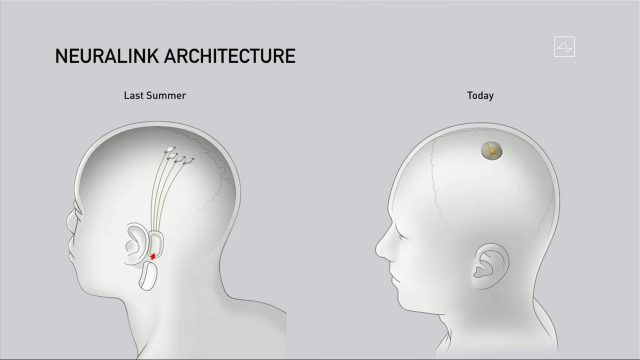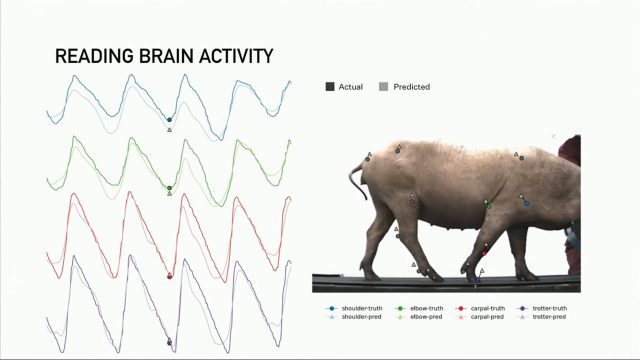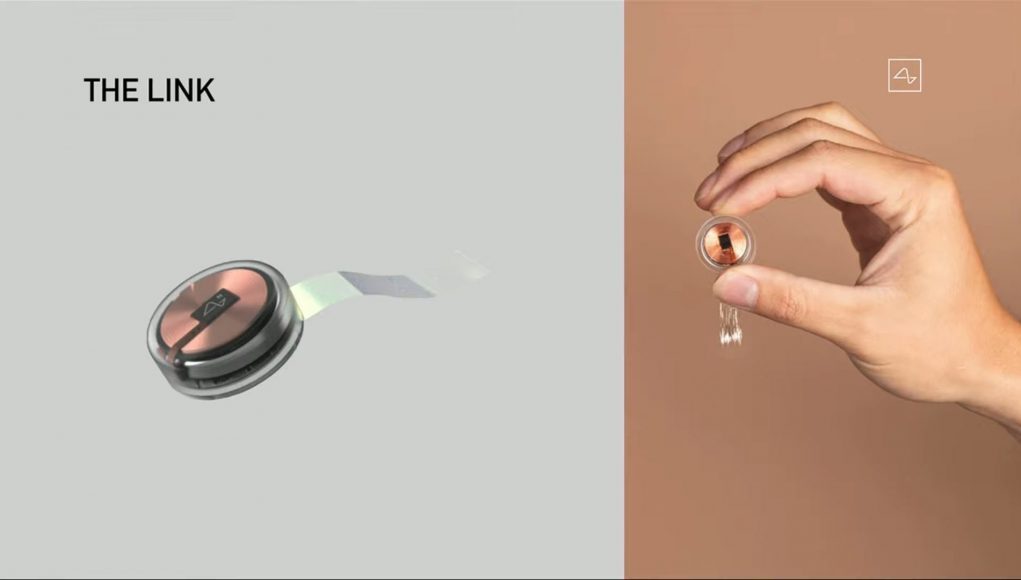In a presentation showing the latest developments on Neuralink’s brain-computer interface, Elon Musk revealed that the company has implanted prototype devices in live pigs, and was able to achieve rudimentary limb-tracking by monitoring activity in the brain.
Neuralink is a brain-computer interface startup founded by Elon Musk. The company hopes to build an implantable device that can read electrical signals from the brain and also “write” to the brain by stimulating it with electrical signals of its own. The initial focus is on medical applications, but the company expects similar devices to be used much more widely in the long run, including for gaming.
Neuralink recently shared an update on its latest brain-interface device and the surgical robot which is being design to make implantations precise and cost effective.
In a live presentation, Elon Musk revealed Neuralink’s latest prototype brain-interface device which it calls the Link 0.9. While a prior version of the Link was mostly external to the brain, except for tiny wires that were inserted, the Link 0.9 is a fully internal device that is implanted in a coin-sized slot cut into the skull, with the skin healed back over top of it. The device is inductively charged through the skin.

Neuralink revealed that it has already been implating the device into live pigs to demonstrate that the procedure is safe and that Link can be removed if necessary without causing any lasting brain damage, according to the company.
The pig implants are functional Link devices which read activity from a shallow portion of the brain by detecting electrical activity across 1,024 locations. In the demonstration the company showed a visualization of the brain activity data being read by the device.
Musk showed that Neuralink had rigged up an algorithm for rudimentary limb-tracking using input only from the Link. The company used the data to predict the position of each limb which was matched with visual measurement of the limbs to show how closely the prediction matched reality.

Though there was a significant amount of error in the predicted positions, it was still close enough to appear impressive considering the source of the data. While Musk said the predictions were based on the “neural activity” of the pig, he had also said previously in the presentation that the Link would include other sensors like an IMU; we’ll be interested to see more detailed research published on this particular experiment, as the addition of IMU data would make it a much less impressive demonstration of rudimentary limb-tracking. A pig’s gait is also not a particularly dynamic pattern, so it isn’t clear how well this method could translate to something like human arm motions.
In the long run the company is “100%” certain that brain-interface devices like Link will be used in gaming.
“I think that a good benchmark of ‘does it work well on humans’ is ‘does it work well enough for a quadriplegic play Starcraft’,” Neuralink’s Max Hodak said during a Q&A session following the presentation. “That’s a good functional target.”
In the presentation Musk announced that Neuralink has been granted a “breakthrough” designation by the US Food and Drug Administration (which approves medical treatments and devices). Such a designation is made to accelerate the regulatory process for promising treatments.
The company also believes that its brain-interface tech will be able to solve a laundry list of brain-related medical conditions in the long run; the presentation specifically listed: memory loss, hearing loss, blindness, paralysis, depression, insomnia, extreme pain, seizures, anxiety, addition, strokes, and brain damage.







